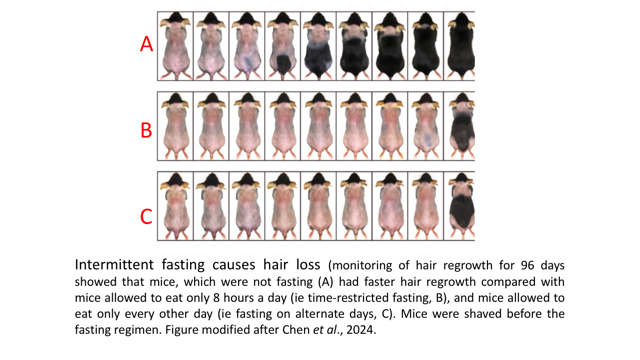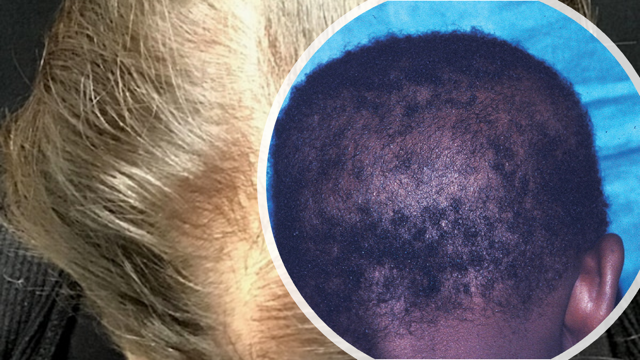In the good old days voluntary fasting was simply a matter of religious practice as a way of mastering and subduing the body in order to form a closer spiritual relationship with God. But nowadays with the advent of health-consciousness, intermittent fasting has become a trendy way of losing weight and even enhancing longevity.
Intermittent fasting regimen could be in the form of having an 8-hour feeding window and then fasting for the rest of the day (i.e. time-restricted eating) or fasting on alternate days (i.e. eating for a day and fasting the next day) or fasting for 23 hours and eating for only one hour. Whichever choice one chooses, it is advisable that one gradually builds up steam. Talking to your doctor before going pellmell into the fasting regimen would not hurt.
Join our WhatsApp ChannelThere are arguably many advantages in indulging in intermittent fasting apart from religious fulfilment. Intermittent fasting is known to improve the function and stress resistance of stem cells in the intestine and muscle. For example, Intestinal stem cells in mice showed a burst of activity during post-fast feeding, which helped repair damage.
Intermittent fasting can include a metabolic energy switch from glucose to ketone. In addition to increasing stress resistance by enhancing antioxidant defence and repair mechanisms, the metabolic switch also increases longevity by decreasing disease incidence through a reduction in cellular inflammation. Intermittent fasting can also improve cardiometabolic health by improving insulin sensitivity and lowering blood pressure.
However, it has been reported that very low-calorie diets may also result in hair loss in people seeking rapid weight loss. A study published in the December 2024 issue of the journal, Cell, by Bing Zhang and coworkers put a big question mark on the health benefits of intermittent fasting. The researchers found that it inhibits hair follicle growth by causing the death of hair follicle stem cells.
The hair follicle stem cells within the skin undergo cyclic phases of growth, regression, and rest in order to produce new hairs. In the resting stage, hair follicle stem cells are inactive in the bulge of the follicle and hair germ areas. But during the growth phase stem cells are active for a short time, during which they initiate their own regeneration and also the regeneration of hair follicle. A variety of external stimuli or physiological changes can modulate the regenerative abilities of hair follicle stem cells. For example, apoptosis of hair follicle stem cells was significantly reduced in fasting mice when fatty acid oxidation was genetically blocked.
READ ALSO: Nigeria’s Flooding Crisis: A Pathway To Health Disaster
The researchers in a study that lasted for several months subjected shaved mice to two intermittent fasting regimens: time-restricted eating and alternate-day fasting. They observed that fasting mice had reduced hair growth compared with control mice (see Figure).

Detailed analysis traced the cause of this defect to the inhibition of hair follicle regeneration. Fasting activates inter organ communication between the adrenal glands (i.e. organs that produce stress hormones) and adipocytes (i.e. fat cells) in the skin. The interaction triggers the release of free fatty acids. The fats inhibit the metabolism of hair follicle stem cells and increase cellular reactive oxygen species levels, which result in oxidative damage and death of hair follicle stem cells.
To replicate this effect in humans, the researchers conducted a randomised trial in which 49 healthy volunteers were either subjected to intermittent fasting regimen, or none (i.e. control group). The researchers found that hair growth in the group subjected to fasting was 18% slower compared with the control group. It must be noted that the effects of fasting vary greatly between mice and humans due to significant differences in metabolism, physiology, and hair follicle biology. However, further studies showed that a similar hair follicle stem cells apoptosis mechanism (i.e. programmed cell death) seen in mice also exists in humans.
The body reacts to fasting by allocating resources to essential organs while dispensing of nonessential ones like hairs. In other words, a loss of hair is a minor inconvenience compared to the huge spiritual and physical benefits of fasting. Moreover, application of antioxidant vitamin E cream to skins of fasting mice prevented stunting of hair growth, an indication that the adverse effects of fasting on hair development can be counteracted.
However, chronic intermittent fasting may not be advisable. This is because in mice, chronic intermittent fasting lasting for eight months resulted in baldness due to a reduction in the stem cell pool, which in turn causes hair follicle degeneration. There is also concern that crosstalk between organs during fasting may cause precancerous intestinal growths if a cancer-causing genetic mutation occurs in the post-fasting period when a burst of stem cells activity occurs. Therefore, it is necessary to conduct more research to determine the effects of fasting on other organs of the body, especially those that are commonly prone to cancer, such as the brain, liver, and kidney.













